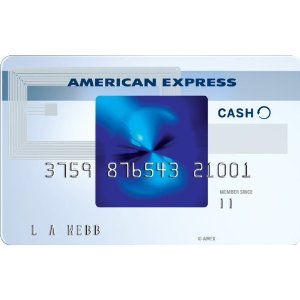Part of a continuing series in which we repurpose something on a topic we wrote about 3 years ago, which is still a far longer cycle than just about anyone else uses in this ludicrous culture we call personal finance blogging. Right now some debt blogger is writing about her emergency fund for the 3rd time in a week.
We’ve written before about what credit card you should get. A few times. But offers change, as do our recommendations:
You have a bank account, right? They gave you a debit card when you opened the account, because otherwise you’d have to go down to your neighborhood branch every time you wanted money and then wait in line with a withdrawal slip. This is how the world used to operate not that long ago, we swear to God. You’d burn half an hour on a Saturday morning to access money that was yours. Of course, if you didn’t like that you were welcome to stash your cash behind a wall panel at your house instead. The world, or at least the money-procuring part of it, has gotten considerably more advanced since then.
That debit card’s going to be branded VISA or MasterCard. You can get separate VISA or MasterCard credit cards from a lending institution(s) of your choice, in the pretty color scheme of your choice (maybe even with a race car on it! Vroom vroom!!) but doing so seems redundant. Meanwhile an American Express card gives you purchase protection and a bunch of other perks, assuming you’re willing to meet the company halfway and pay your bills on time, thus remaining a cardholder in good stead. So yeah, you need a 2nd card. If you never leave the United States, using Discover for your 2nd card won’t hurt you, but American Express is the way to go internationally. Whip out a Discover card in Moscow or Kigali and the locals will think it’s a kids’ novelty item from a souvenir store.
But which American Express to get? They offer 20 different ones, but we can eliminate most of them right away. Those 20 include 2 prepaid ones (what are you, a teenager?), and 13 with annual fees. Of the remaining 5, one has an indirect annual fee – the Costco-branded card, yours for the asking when you pay $55 for a year of Costco membership. Costco membership is a deal in itself, and your CYC principals are both members. But that’s a topic for another day, and joining Costco doesn’t do you much good if you live in a city without a Costco. (That last clause represents the kind of piercing financial insight we’ve become infamous for.)
So that leaves 4 American Express cards, one of them co-branded:
Blue
BlueCash
BlueSky
HiltonHHonors.
We should clarify that the full title of the card referenced above is BlueCash Everyday®. There’s also a BlueCash Preferred® that has an annual fee. Here are the cards and the differences among them. We were going to do a chart but trust us, with all the qualification and fine print this way is easier:
Sign-up bribe if you spend $1000 in the 1st 3 months
- Blue 10,000 points
- BlueSky 7500 points
- BlueCash $100
- HiltonHHonors 40,000 HiltonHHonors points, as distinguished from American Express points. And you only have to spend $750.
Reward schedule
- Blue Spend $1, earn a point. Earn double points on flights, hotel stays etc. bought via AmexTravel.com.
- BlueSky Spend $1, earn a point.
- BlueCash 1% cash back. 2% at (U.S.) stand-alone gas stations and “select” department stores, and 3% on your first $6000 every year at U.S. (stand-alone) supermarkets.
- HiltonHHonors Spend $1, earn 3 HiltonHHonors points. You get an extra 2 points at U.S. restaurants, supermarkets and gas stations; and an extra 4 points at Hilton’s own hotels, assuming you’d ever want to do that. Any cocaine kingpin will tell you that you never get high on your own supply.
So what’s a “point”, anyway? With Blue, it’s redeemable for merchandise and not cash. We’d say that that alone should disqualify Blue from consideration, but of course it depends on how much the points are worth. Which is buried on a different American Express site (MembershipRewards.com), and reads as follows:
You can use points in 20,000-point increments to get a $100 credit on your Card Account.
So a point is worth ½¢, which is a joke.
With BlueSky, a point can be worth 1⅓¢, but only on travel purchases, and only in 7500-point increments. Another joke. In the words of Dale Gribble, jokes should start with “Knock knock” or “What do get when you cross a”. Not “Terms and Conditions: Important Notice.”
Meanwhile the BlueCash cash back is available only in $25 increments. Earn $24.99 and you can’t do a thing with it.
As for the HiltonHHonors points, and obviously this is only worth mentioning if you stay in hotels a lot, points operate on a different scale. At the Hampton Inn in McAllen, Texas, at least tomorrow, a Hilton HHonors point is worth .64¢ in room credits. At the Hilton Manhattan East next month, a HiltonHHonors point is worth as little as .27¢.
But don’t forget, you earn the HiltonHHonors points more quickly than Blue (and its variants) cardholders earn American Express points. At least 3 times faster, in fact. Best-case scenario, if you’re buying groceries at the right store and staying in the appropriate Hilton hotels as a matter of course, you can be “rewarded” up to 4 times as generously as the lowly Blue cardholders.
They make this confusing for a reason. To summarize, our position hasn’t changed despite American Express’s new offerings. Get a BlueCash card and be done with it.



